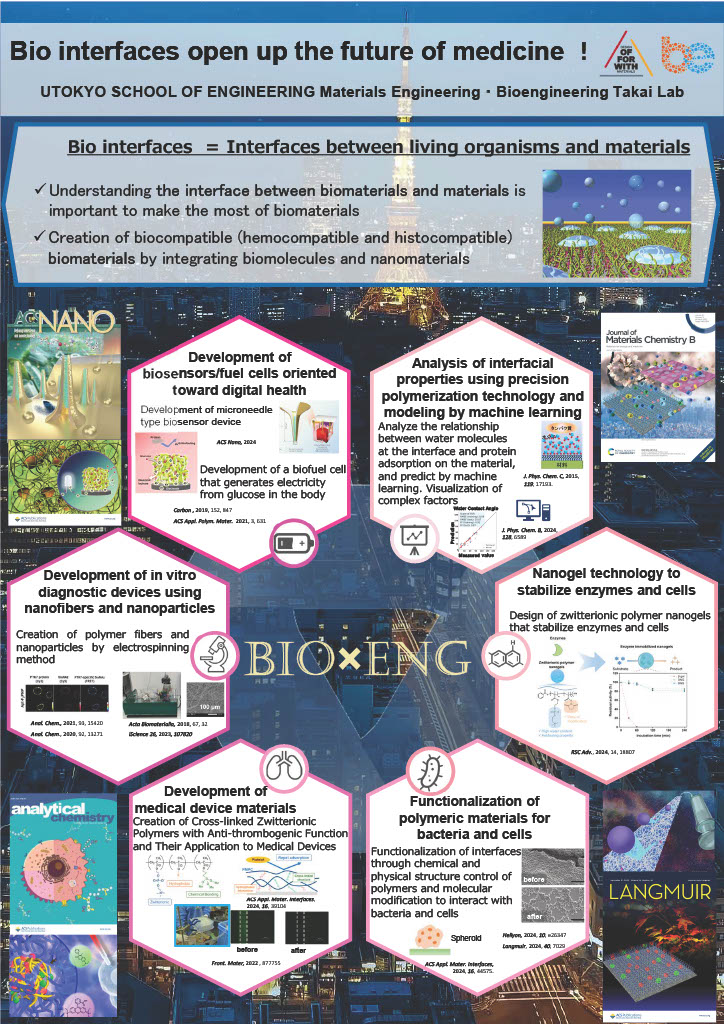Research Topics
1. Construction of High-performance Bio-sensing Materials
Early diagnosis and therefore prevention of diseases would become possible with rapid and highly sensitive diagnosis of biomolecules such as tumor makers, viruses and hormones. The research aims to improve the sensitivity by simultaneously increasing the signal level and decreasing the noise level of the detector biointerface.
1) Sensitivity improvement of nanoparticle and nanofiber biosensors
Construction of nanostructures with biocompatible polymers that are superb in suppressing non-specific adsorptions of biomolecules. The objective is to decrease the noise level, and to improve the sensitivity by increasing the immobilization quantity.
2) Control of antibody orientation and affinity improvement by synthesis of sophisticated biointerface
Construction of biointerface that controls and immobilizes the structure of biomolecules. The objective is to improve the affinity, as well as to have precise control over the function and the molecular specificity of the biointerface.
2. Construction of biochips for medical use
Micro/nano-channels act as an excellent method to perform rapid cellular or protein analysis with limited sample volume. However, non-specific adsorption of biomolecules onto channel walls can lower the accuracy of the analysis. Consequently, the research aims to develop surface treatment techniques that functionalize biochips to reduce the adsorption cells or proteins.
1) Development of techniques to make micro channels biocompatible
The objective is to construct polymer surfaces that repress non-specific adsorption and to develop surface modification techniques on the original glass or polydimethylsiloxane (PDMS) microchip substrate.
2) Development of healthcare chips for self-diagnosis at home
The objective is to develop healthcare chips that require only a single drop of blood and a few minutes to perform health checkups, which can be conveniently used at home.
3. Constructions of new biointerfaces that control cell functions
The affinity between cells and the material is important in developing bio devices. Through construction of biointerfaces that possess various kinds of surface physical properties and time-dependent observation of the whole process from protein adsorption to cell adhesion, the research aims to elucidate the relationship between the physical properties of the material and cell behaviors.
1) Dynamic analysis of cell adhesion via sophisticated polymer brush surfaces
The objective is to synthesize polymer brushes that possess a variety of surface physical properties such as hydrophilicity and electrical charges, and to perform dynamic analysis of cell adhesion behaviors on these surfaces via QCM-D to clarify the relationship between the material and cell adhesion behaviors.
2) Cell adhesion analysis via self-assembling structure of block co-polymers
Construction of nano-scale cell-adhering surface domains by hydrophilic or hydrophobic interactions within the self-assembling block co-polymers. The objective is to elucidate the factors that affect cell adhesion behavior by systematic evaluation of intercellular and cell-material interactions.
Download documents

[ Download Takai Lab's Reserch Introduction (PDF/1.1MB) ]
[ Return to top ]